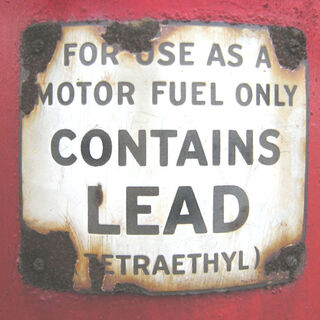Child Development
The Lasting Harm of Childhood Lead Exposure on Gen X
Leaded gas stole 824 million IQ points from over half of the U.S. population.
Posted March 21, 2022 Reviewed by Devon Frye
Key points
- Widespread use of leaded gasoline in the 1960s and 1970s means that essentially everyone born then was exposed to dangerous levels of lead.
- Gen X may be at greater risk for lead-related health problems—including reduced brain size, mental illness, and cardiovascular disease.
- This childhood lead exposure may have stolen an average of almost three IQ points per person, and nearly six IQ points on average for Gen Xers.
- Even relatively small IQ deficits can meaningfully impact an individual’s educational and occupational attainment, health, wealth, and happiness.

Researchers from Duke University and Florida State University have determined that childhood exposure to car exhaust from leaded gas robbed more than 170 million Americans alive today of a collective 824 million IQ points.
In a study published March 7 in Proceedings of the National Academy of Sciences, the use of leaded gas peaked in the U.S. in the 1960s and 1970s, essentially guaranteeing that any Americans born in those decades were exposed as children to extremely damaging levels of lead from car exhaust.
A major source of lead exposure used to be through automotive exhaust. The neurotoxicity of lead means that there is no safe level of exposure at any age, but young children are particularly at risk for impaired brain development and lowered cognitive ability. Although leaded gas for cars was banned in the U.S. in 1996, the findings suggest that any Americans born before then, and especially during the 1960s and 1970s, may be at a greater risk for lead-related health problems such as reduced brain size, greater likelihood of mental illness, and increased cardiovascular disease in adulthood.
Shockingly, this childhood lead exposure in the U.S. may have stolen an average of almost three IQ points per person. At worst, those born in the mid-1960s to mid-1970s may have lost nearly six IQ points on average. And among children during that period who registered the highest levels of lead in their blood (eight times the current minimum level for clinical concern), the potential loss was almost seven and a half IQ points on average.

Even relatively small deficits in IQ can have a meaningful impact on an individual’s educational and occupational attainment, health, wealth, and happiness.
Although Americans born after the ban on leaded fuel were exposed to appreciably lower lead than their parents and grandparents, lead levels in children today are still multiple times higher than in their preindustrial ancestors. Many areas of the U.S. have lingering legacies of lead problems comparable to those widely publicized in Flint, Michigan due to the city's water crisis.
"Millions of us are walking around with a history of lead exposure," said Aaron Reuben, a co-author of the study and a Ph.D. candidate in clinical psychology at Duke University. "It's not like you got into a car accident and had a rotator cuff tear that heals and then you're fine. It appears to be an insult carried in the body in different ways that we're still trying to understand but that can have implications for life."
Future research will examine racial disparities in childhood lead exposure and the long-term consequences of past lead exposure on brain health in old age.
References
McFarland, M.J., Hauer, M.E., & Reuben, A. (2022). Half of US population exposed to adverse lead levels in early childhood. Proceedings of the National Academy of Sciences, 119(11) e2118631119. DOI: 10.1073/pnas.2118631119
Rees, N. & Fuller, R. The toxic truth: Children’s exposure to lead pollution undermines a generation of future potential. United Nations Children’s Fund. https://www.unicef.org/reports/toxic-truth-childrens-exposure-to-lead-pollution-2020. Accessed 21 March 2022.


